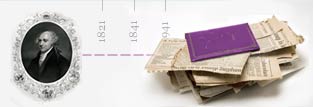July 2011 - Phil Moir's Blog
Welcome to the new Genes Reunited blog!
- We regularly add blogs covering a variety of topics. You can add your own comments at the bottom.
- The Genes Reunited Team will be writing blogs and keeping you up to date with changes happening on the site.
- In the future we hope to have guest bloggers that will be able to give you tips and advice as to how to trace your family history.
- The blogs will have various privacy settings, so that you can choose who you share your blog with.
Summary
Official Blogs
Henry Turnbull's voyage to South Africa in 1904
On Saturday the 3rd December 1904, the relatively new RMS "Kenilworth Castle" passenger liner (part of the fleet of Union-Castle Line. See also Union Castle) slipped out of Southampton Docks bound for South Africa. Master of the ship for this voyage was Captain J Morton. The ship was travelling with only half occupancy, some 330 out of a possible 754 passengers spread across the three classes and up to 250 crew. The ship would make one stop in Madeira, the small Portuguese archipelago some 400km east of the Moroccan coast in the North Atlantic, where 15 passengers were due to disembark (and a few likely to join), before proceeding onto Cape Town, Port Elizabeth, East London and then finally 49 days after departing from England, it would reach Durban. Of the 330 passengers who originally boarded in Southampton, the majority, some 258 were due to leave the ship when it first docked in South Africa at Cape Town.
Technical Update - 8th July 2011
Another end to the (working) week, although I appreciate that this is for many of you, your chance to get back into your family history research, but I think it is only fair to give an update on the site.

